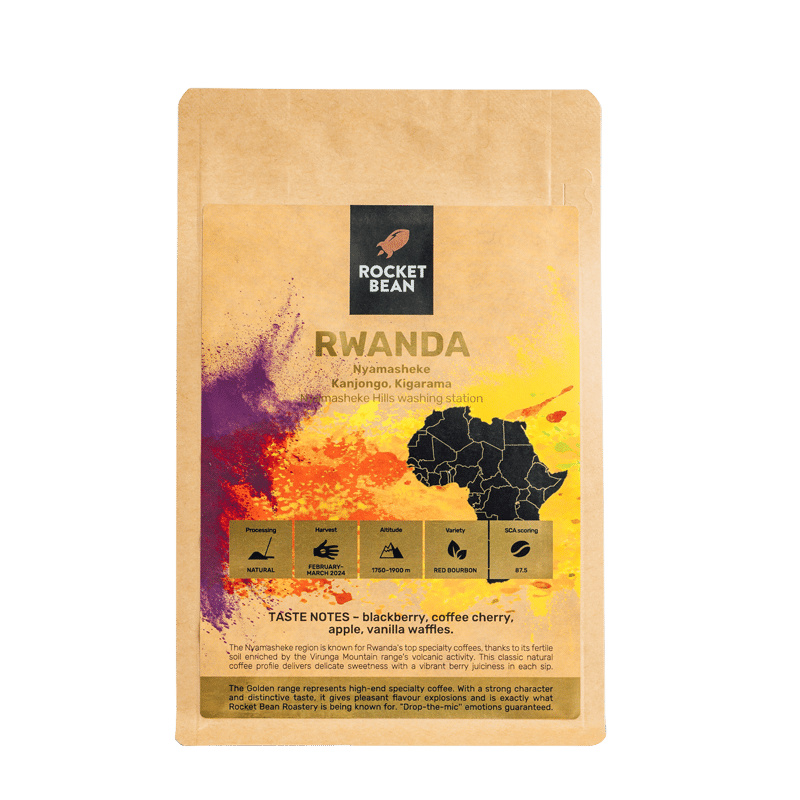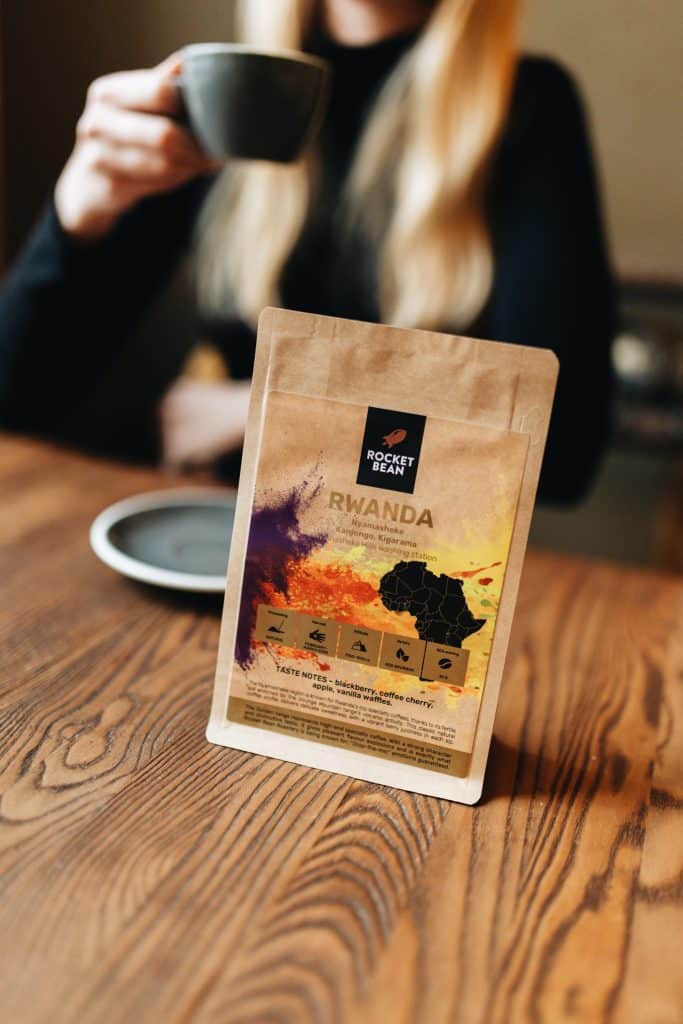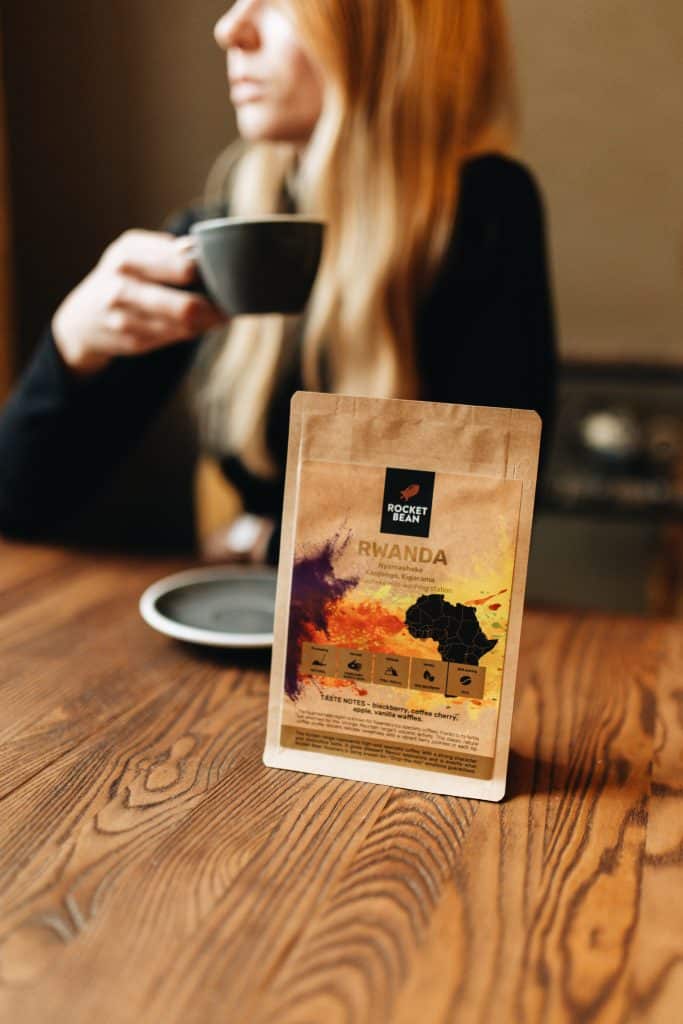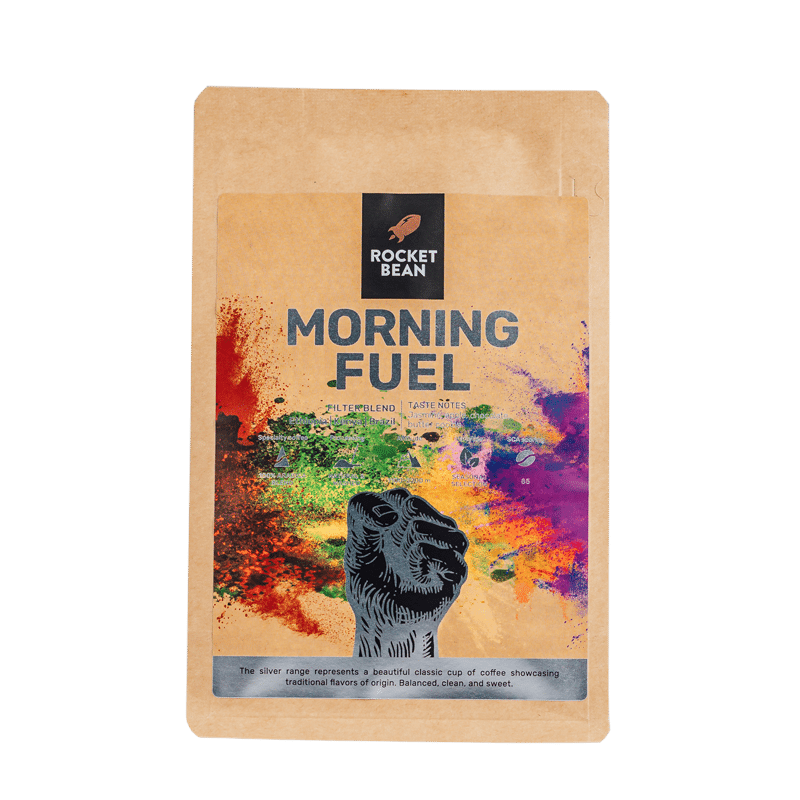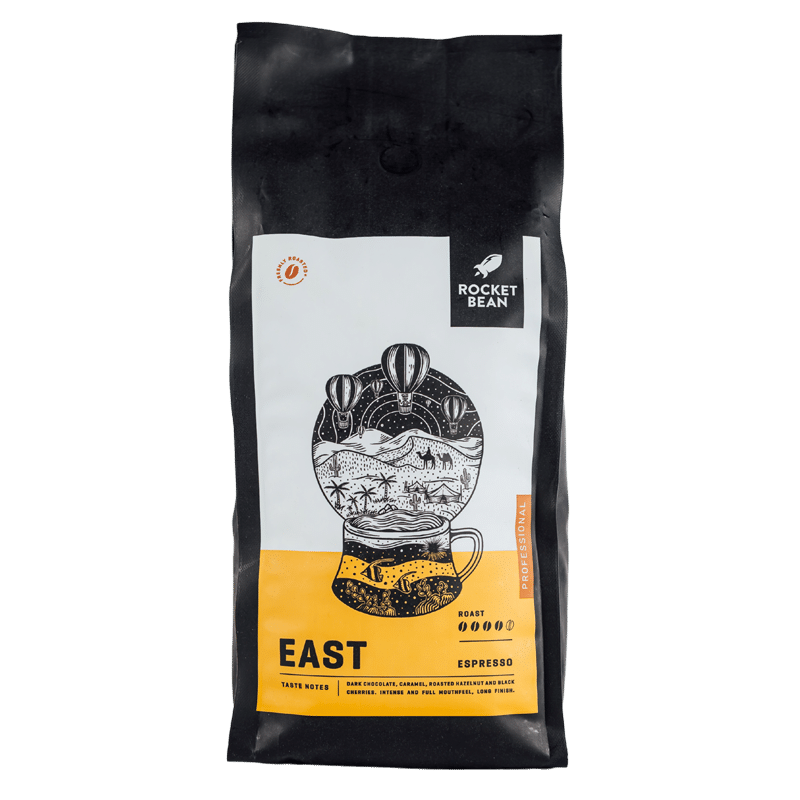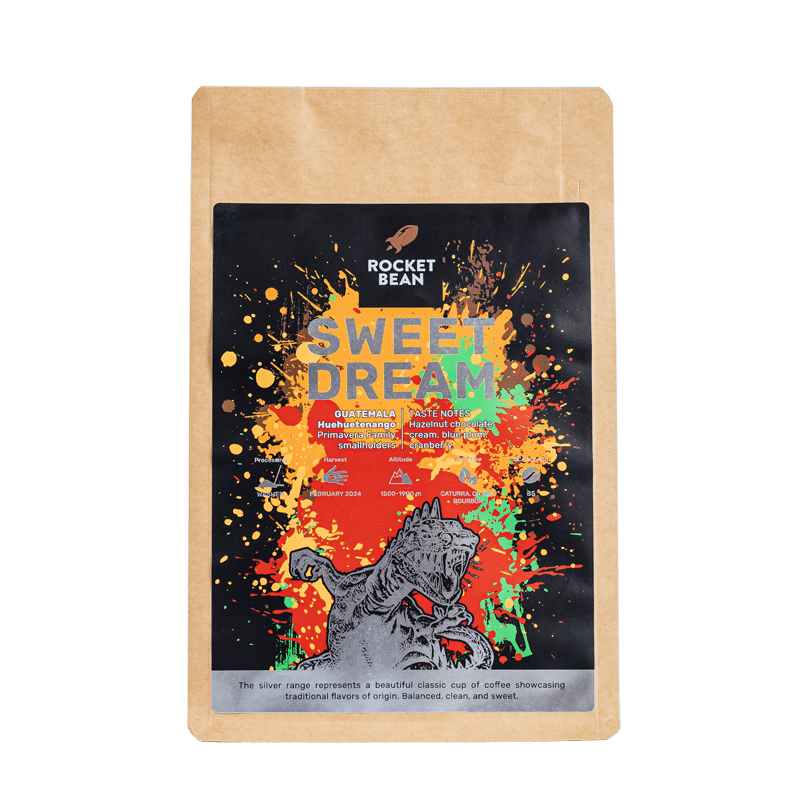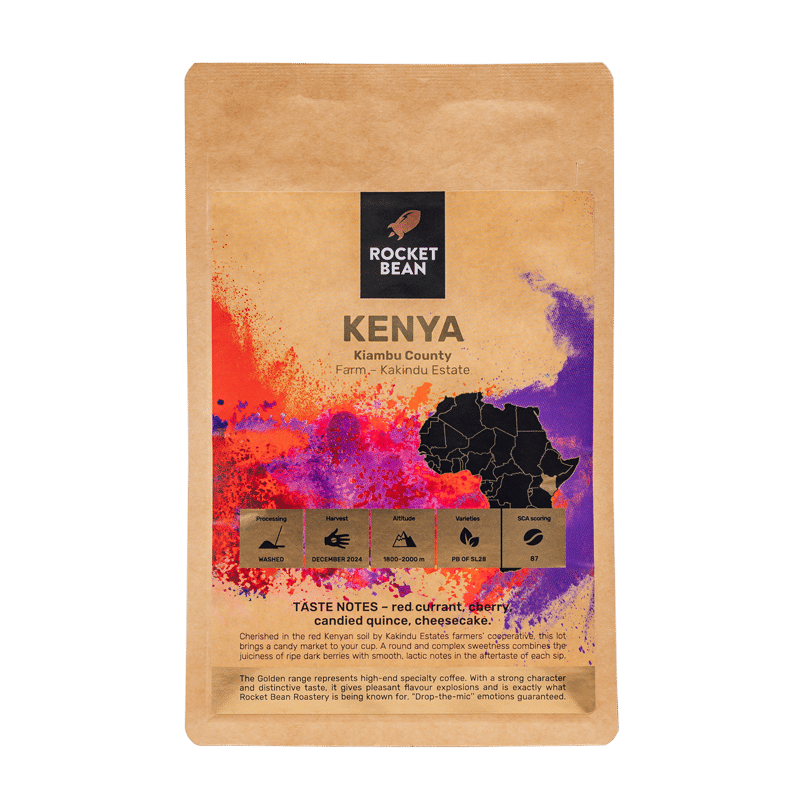Rwanda | Nyamasheke Hills, Natural
Filter
- Country: Rwanda
- Region: Nyamasheke, Kanjongo, Kigarama
- Washing station: Nyamasheke Hills washing station
- Taste and Arome: Blackberry, coffee cherry, apple, vanilla waffles
15,00 €
Processing
Natural
Harvest
February - March 2024
Altitude
1750 - 1900 m
Variety
Red Bourbon
Scoring
87.5
The Nyamasheke region is known for Rwanda’s top specialty coffees, thanks to its fertile soil enriched by the Virunga Mountain range’s volcanic activity. This classic natural coffee profile delivers delicate sweetness with a vibrant berry juiciness in each sip.
Origin:
Rwanda
Rwanda, known as the “Land of a Thousand Hills,” is famous for its exceptional Arabica coffee, especially the Bourbon variety. The combination of high altitudes, fertile volcanic soils, and a favorable climate creates the perfect conditions for growing coffee. The country’s coffee is cultivated at elevations ranging from 1,400 to 2,100 meters, with a temperate climate and annual rainfall between 850-1,500 mm. The rich volcanic soils and mineral-rich spring waters contribute to the distinct flavor profile of Rwandan coffee. Key coffee-producing regions, such as Nyamasheke, Kanjongo, and Kigarama, take advantage of these conditions, making Rwanda’s coffee highly regarded worldwide.
Washing station:
Nyamasheke Hills Washing Station
The Nyamasheke Hills washing station is operated by the Nyamasheke coffee cooperative, which brings together local farmers to process and market their coffee. Located in Rwanda’s Nyamasheke district, the station plays a key role in producing high-quality arabica coffee, particularly the bourbon variety. It processes cherries using a meticulous method that includes floating to remove defects, pulping, and fermenting the coffee for 16-18 hours. After fermentation, the coffee is washed, soaked, and dried on raised beds for optimal airflow.
The cooperative is committed to environmental sustainability, treating its wastewater with effective microorganisms (EMTechnologies™) to protect local water resources. During the harvest season, around 50 local men and women are employed, supporting the local economy and providing jobs to the community. The Nyamasheke Hills washing station significantly contributes to the high-quality coffee produced in the region while promoting sustainable practices and supporting the livelihoods of local farmers.
Variety:
Bourbon
Bourbon coffee is a highly prized Arabica variety that originated on the island of Réunion (formerly known as Bourbon) and later spread to coffee-growing regions in Latin America, Africa, and Asia. Known for its well-rounded flavor profile, it offers bright acidity, a smooth body, and complex fruity notes, often with hints of chocolate, caramel, and berries. Bourbon thrives at high altitudes, where cooler temperatures and slower cherry maturation contribute to its rich and nuanced flavors.
While Bourbon plants are relatively resistant to certain pests and diseases, they are more susceptible to coffee leaf rust in some regions, which requires careful management. The trees are productive but need specific conditions to produce the best coffee, including fertile volcanic soils, adequate rainfall, and good shade. Bourbon has also had a significant influence on the development of other coffee varieties, with many modern cultivars, like Geisha and Caturra, tracing their genetics to Bourbon. Due to its quality and complexity, Bourbon remains a key component in specialty coffee blends and contributes to the distinctive flavor profiles of coffee produced in regions like Rwanda, Tanzania, Colombia and others.
Processing
Once coffee cherries are fully ripe, they are carefully handpicked from coffee trees by smallholders working with the Nyamasheke Hills washing station to ensure only the best cherries with optimal ripeness are selected. After harvesting, the cherries are delivered to the washing station, where they are sorted by hand to remove any defective or under-ripe cherries. The cherries are then spread in a thin layer on raised drying beds, so-called african beds, where they are turned regularly to ensure even drying. This drying process takes 2-3 weeks, during which uniform fermentation and flavor development occur. In Rwanda, harvesting usually takes place during the dry season, which aids in the drying process. Once the cherries reach a moisture content of around 12-13%, the outer fruit layer, or parchment, is removed using hulling machines, leaving behind the green coffee beans. These beans are then cleaned to remove any remaining fruit or debris. The hulled beans are sorted and graded by size and quality by hand, ensuring only the highest quality beans make it to market while inferior beans are separated out in lower grade coffee lots. Finally, once sorted and graded, the beans are packed into 60kg bags and delivered to the nearest port, from where they begin their journey to the EU.
